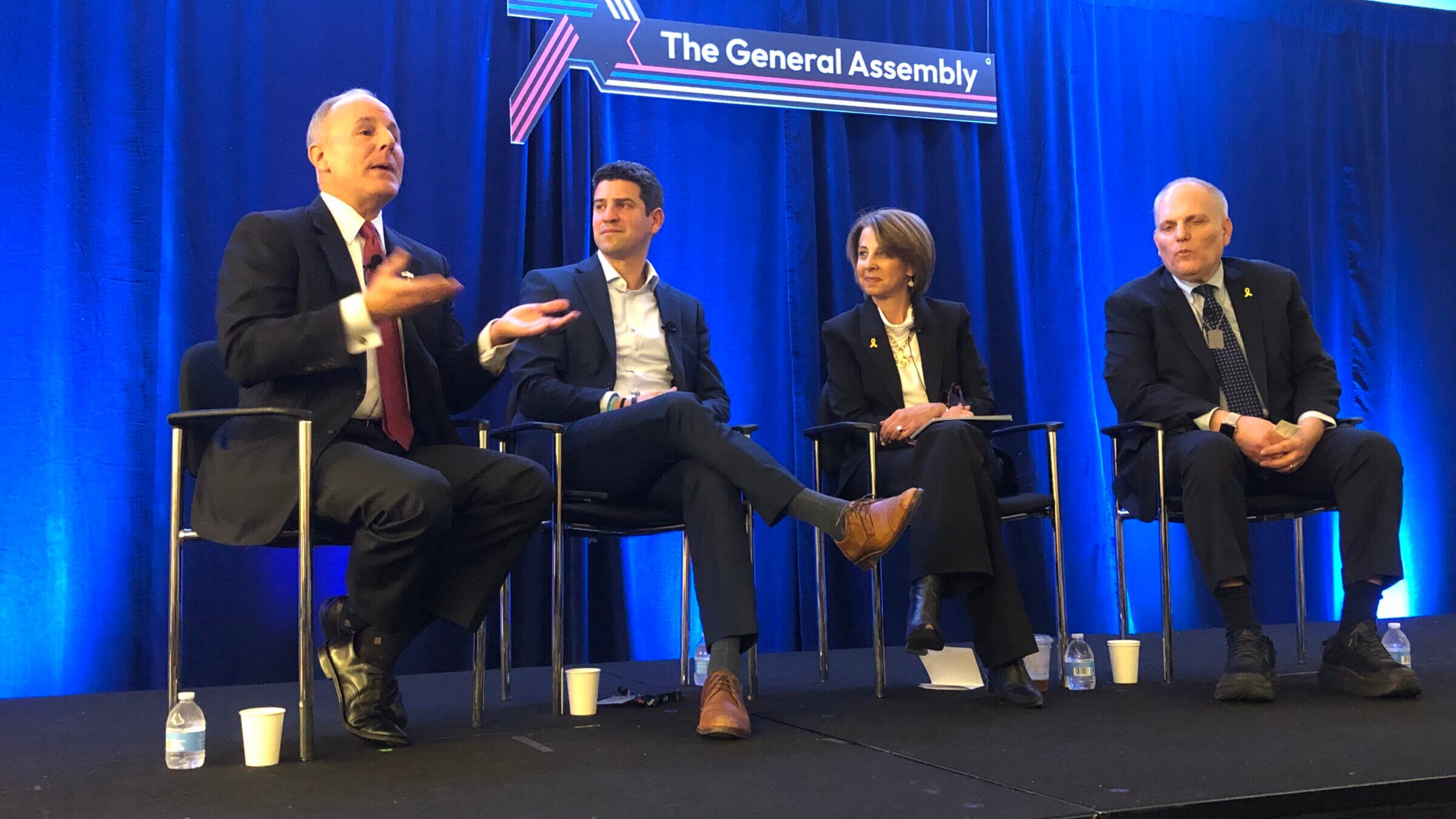Will Trump appoint a Jewish liaison? He’s the only president in nearly half a century who hasn’t.
Why some argue that having a Jewish son-in-law is not enough

Left to right, Elan Carr, Trump’s special envoy on antisemitism; Chanan Weissmann, former White House liaison to the Jewish community; moderator Liz Shrayer and William Daroff, CEO of the conference of Presidents of Major American Jewish Organizations, discuss Jewish relations with presidential administrations on Nov. 11, 2024, at a panel organized by the Jewish Federations of North America at their annual conference in Washington, D.C. Photo by Lauren Markoe
Every American president since Jimmy Carter has had a liaison to the Jewish community — except Donald Trump.
After Tuesday’s election, Jewish leaders from both parties and no parties are urging Trump to change that when he returns to the White House next year.
Chanan Weissman, who served in the role under both former President Barack Obama and President Joe Biden, said Monday that it’s important to have the liaison because Jews, like Blacks and Latinos, are a minority community in the United States. While Jared Kushner, Trump’s Jewish son-in-law, was an important adviser during the first Trump term, Weissman said, it’s not enough.
“He probably was somebody who had a relationship with certain individuals from certain parts of our community,” Weissman said of Kushner, who has said he will not serve in a second Trump administration. “The role of the liaison is really to be the open door for all members of the Jewish community, regardless of how powerful or how much influence or the strength of the relationship.”
Weissman was speaking on a panel called “Advising the Oval Office” as part of the annual conference of the Jewish Federations of North America in Washington, D.C.
Elan Carr, who served as Trump’s special envoy on antisemitism, was also on the panel, and said that while he did some of the work of a Jewish liaison, “it’s better to have one” officially.
“There was the internal White House dynamic, which I had access to, but I was still, you know, I had a job,” Carr said, adding that he was “astounded” by how much American Jews’ concerns were taken seriously by the administration.
Carr said after the panel that he “cant’ say” if he would take the liaison job if Trump offered it to him.
William Daroff, CEO of the Conference of Presidents of Major American Jewish Organizations, said during the panel discussion that Jewish liaisons in past administrations have had various amounts of influence.
“Who that person is —whether they’re a traffic cop or whether they’re a senior person who can actually open doors and also be a traffic cop — is important too,” Daroff noted.
A message from our CEO & publisher Rachel Fishman Feddersen
I hope you appreciated this article. Before you go, I’d like to ask you to please support the Forward’s award-winning, nonprofit journalism during this critical time.
We’ve set a goal to raise $260,000 by December 31. That’s an ambitious goal, but one that will give us the resources we need to invest in the high quality news, opinion, analysis and cultural coverage that isn’t available anywhere else.
If you feel inspired to make an impact, now is the time to give something back. Join us as a member at your most generous level.
— Rachel Fishman Feddersen, Publisher and CEO